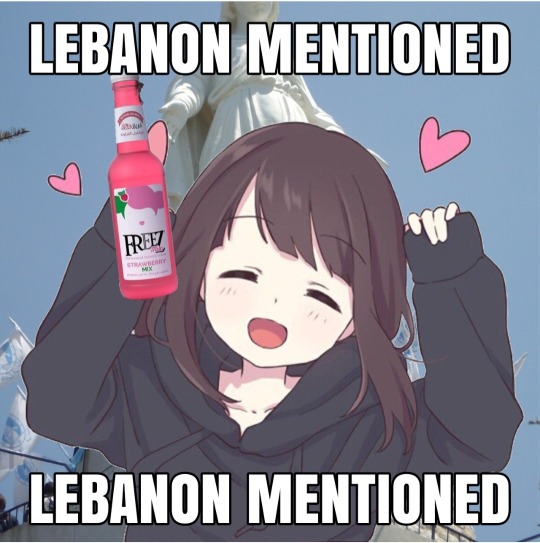#brazil mentioned
Text
If this if this post gets 150 notes I will make this blog part of the aspec military
@actual-aspec-military I challenge you!
No rules, spam freely
Edit: changed the goal
#brazil#gimmick blog#brazil mentioned#Aspec military#queer military verse#plotting and vibing#come to brazil#Aspec Brazil
889 notes
·
View notes
Text
Do Bostonians know their city's name sounds like "shit" to us Brazilians?
207 notes
·
View notes
Text

I found a Brazil colored Auraboa gen1 in the Auction House and I just knew what I had to do <3
#fr art#frfanart#fr fanart#fr auraboa#flight rising#brazil#brazilian#brazil mentioned#dragon share#flight rising art
158 notes
·
View notes
Note
Desenha o Jax do flamengo mano

pior que eu nem sou flamenguista
62 notes
·
View notes
Text

i finally made this. its for when people make the mistake of mentioning the cdi games, or something that happened in the cdi games, or something that reminds me of the cdi games
#cdi zelda#zelda cdi#loz#zelda#the legend of zelda#idk lol i just amde it for my own usage.#i see her everywhere i go#brazil mentioned#my nyart#i miss queue
27 notes
·
View notes
Text

I've heard gringos got acquainted with the rightful owner of Brazilian telenovelas, Ana Paula Arósio, and even know her as Hilda Furacão (or Hilda Hurricane). And she deserves every drop of recognition.
Ana Paula Arósio
#digital illustration#illustration#illustrations#illustrator#photoshop#photoshop illustration#photoshop art#photoshop artist#photoshop cc#pop culture illustration#ana paula arosio#hilda furacao#hilda hurricane#tv globo#globo#brazilian actress#brazilcore#brazil#brazil mentioned#come to brazil#globoplay#fan art#commission open#open commissions#art commisions#portrait#telenovela#novelas#90s television#90s
33 notes
·
View notes
Text


i made "syria mentioned" and "lebanon mentioned" because I'm ethnically Syrian and Lebanese
36 notes
·
View notes
Text

Summer 1962. Rio de Janeiro. At the Veloso Bar, a block from the beach at Ipanema, two friends—the composer Antonio Carlos Jobim and the poet Vinícius de Moraes—are drinking Brahma beer and musing about their latest song collaboration.
The duo favor the place for the good brew and the even better girl-watching opportunities. Though both are married men, they’re not above a little ogling. Especially when it comes to a neighborhood girl nicknamed Helô. Eighteen-year-old Heloisa Eneida Menezes Pais Pinto is a Carioca—a native of Rio. She’s tall and tan, with emerald green eyes and long, dark wavy hair. They’ve seen her passing by, as she’s heading to the beach or coming home from school. She has a way of walking that de Moraes calls “sheer poetry.”
Legend has it that Jobim and de Moraes were so inspired by this shapely coed, they wrote a song for her right on the bar napkins. It’s a good story, but it’s not quite true.
While Helô inspired the song, it was another Carioca who carried it beyond Rio. Astrud Gilberto was just the wife of singing star João Gilberto when she entered a NYC studio in March 1963. João and Jobim were making a record with tenor saxman Stan Getz. The idea of cutting a verse on “Ipanema” in English came up, and Astrud was the only one of the Brazilians who spoke more than phrasebook English.
Astrud’s child-like vocal, devoid of vibrato and singerly mannerisms, was the perfect foil for her husband’s soft bumblebee voice. Jobim tinkled piano. Getz blew a creamy smooth tenor. Four minutes of magic went to tape.
A year later, the song was casting its quiet spell of sea and sand on the charts, washing past the Beatles’ “I Want To Hold Your Hand.” It peaked in mid-June at No. 5, selling over two million copies.
“The Girl From Ipanema” went on to become the second-most recorded popular song in history, behind “Yesterday.” Covered by an A-Z gamut of performers, it’s become the ultimate cliché of elevator music—shorthand for the entire lounge revival of the ’90s.
Over the years, Helô Pinheiro (her married name) enjoyed country-wide fame, ranking with Pelé as one of the goodwill ambassadors of Brazil. She never settled on an occupation, dabbling in acting, then running a modeling agency. In 1987, she posed nude for Playboy (and again in 2003, with her daughter Ticiane). In 2001, Helô opened the Girl From Ipanema clothing boutique in a Rio shopping center.
Shortly after, the heirs of Jobim (who died in 1994) and de Moraes (who died in 1980) filed a lawsuit, claiming Helô was only inadvertently involved in the song’s creation and didn’t have the right to use it for commercial purposes.
Helô says, “I never made a cent from ‘The Girl From Ipanema,’ nor do I claim that I should. Yet now that I’m using a legally registered trademark, they want to prohibit me from being the girl from Ipanema. I’m sure that Antonio and Vinícius would never question the use of the name.”
After much ugliness in and out of court, Helô was able to keep the name for her boutique. Today, she reflects on the early ’60s in Ipanema with nostalgia. “I like the time when everything was prettier because of love, as it says in the Portuguese version of the song. I am still touched when somebody plays the song in my honor.”
—By Bill DeMain
Image: As a teenager, Helo Pinheiro was a regular on Rio's Ipanema Beach
#the girl from ipanema#brazil#brazil mentioned#vinicius de moraes#antonio carlos jobim#music history#1960s#rio de janeiro
13 notes
·
View notes
Text

Another commission I did for a friend :)
61 notes
·
View notes
Text
KING PROVING ONCE AGAIN HIS GOOD TASTE AND THAT HE IS THE PERFECT MAN



#bed friend#bed friends#how to make a Brazilian obsessed? just mention oir country#Brazil mentioned#brasil#bl drama
93 notes
·
View notes
Text
Why brazilian food is superior
Hot dog 🇧🇷/🇺🇲


Strogonoff 🇧🇷/🇷🇺


Pizza 🇧🇷/🇮🇹


croissant 🇧🇷/🇲🇫


@official-the-united-states @totally-italy @totally-france
#brazil#gimmick blog#brazil mentioned#brazilian food#brazilian food is the best#united states#italy#france
22 notes
·
View notes
Text
I feel like monster movies would benefit from the portuguese word "bicho". It's a very casual, informal synonym for animal, which adds a skrunkliness to it. I've watched Nope and that was fucking bicho if I've ever seen one.
#another bichão is godzilla in minus one#I think kaiju fans would delight themselves using this word#my posts#nope movie#nope 2022#godzilla minus one#portuguese#brazil mentioned
127 notes
·
View notes
Text
in brazil we dont say "can you repeat that i couldnt hear you" we say "take the dick out of ur mouth before you speak" and i think thays beautiful <3
8 notes
·
View notes
Note
Are you Brazilian or smth ( I have seen you speak Portuguese before )
Yes I am! Olá!!
9 notes
·
View notes
Text
GLTQ Pride Flag

GLTQ or LGTQ (formerly GLT/LGT+): an acronym for monospec queers and LGBTPN+ people; gay, and/or lesbian, and/or trans, and/or queer.
It was coined around 1990s, meant to be more inclusive than GLA (gay & lesbian alliance, GLS in Brazil). Nowadays it can seen as outdated or regressive, others may seem it as empowering or representational, or indiferrent/ambivalent.
Not to be confused with the semibisexual flag, they are dissimilar.
#gla#glt#lgt#lgtq#gltq#queer#gay#lesbian#alliance#pride flags#lgbtqia+#ap#mogai#lgbt#lgbtq#qpower#q power#q#brazil mentioned
15 notes
·
View notes
